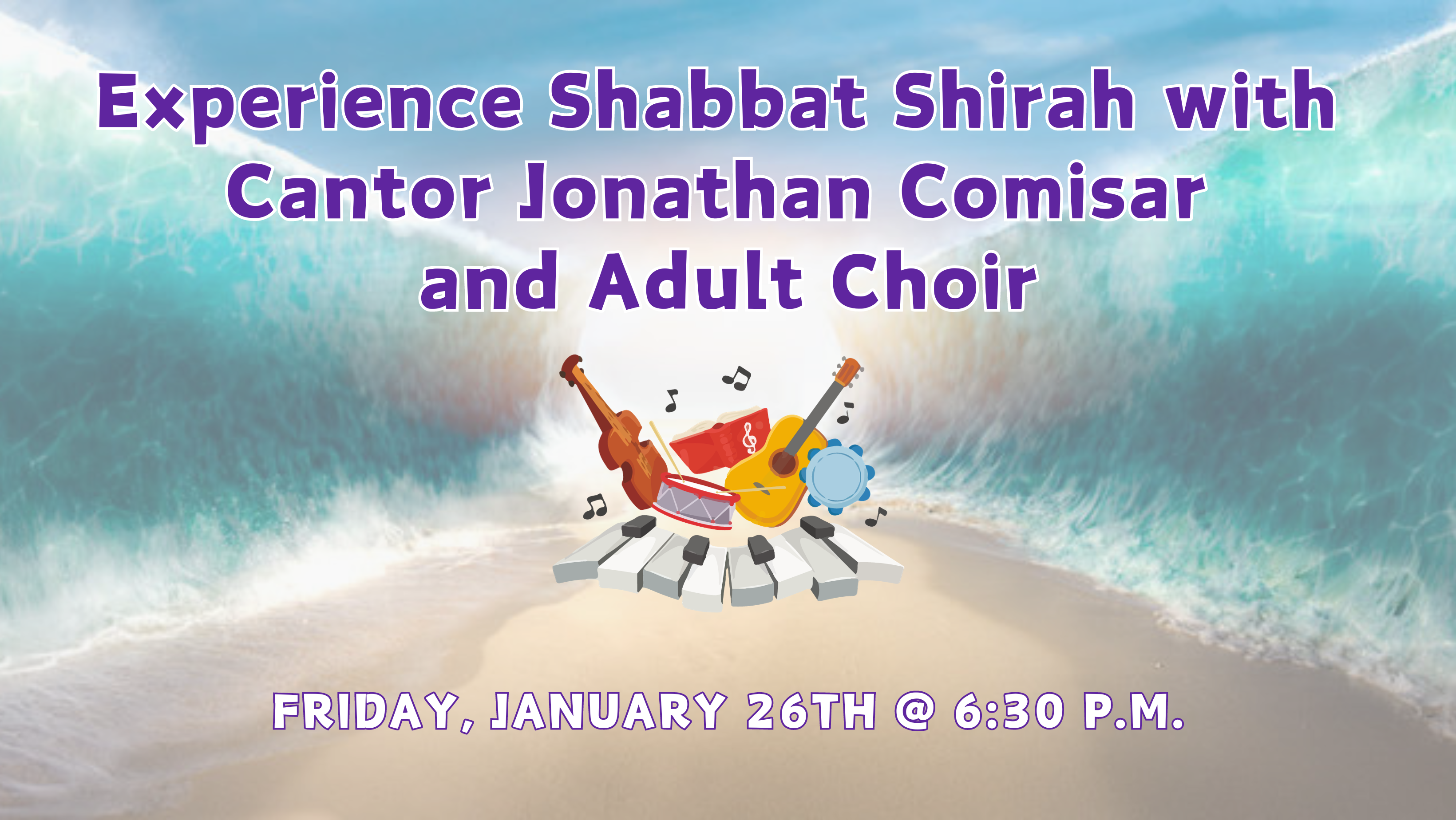I’ve had two settings of a prayer on repeat lately as I listen to music on my way to temple. The prayer begins “Ilu finu malei shirat ka’yam,” “If only our mouths were as full of song as the sea…” and the composers are Miriam Margles and Josh Warshawsky. Both settings have a nice, relatively easy, and singable melody. But in their simplicity bring other voices and instruments that give rise to fun and flexible harmonies. I often find myself listening and trying to find a new harmony, a new part to sing, in the recording. It’s a fun challenge and always brings me new appreciation for the composers as well as the text that inspired the composition.
While I’m finding new flexible harmonies, I’m also finding new ways to understand the text. In my mind, “If only our mouths were as full of song as the sea, and our tongues full of joy as the multitude of waves” becomes “If only our mouths were as full of song as we were at the sea, and our tongues rise up in joy as multitude of waves.” That it’s not just nature that can praise in unlimited ways, but we too are, and have been, able to praise. What better moment to remember that innate talent than to reflect, remember, and recreate the moment when we crossed a split sea and began a journey that took us from the confines of slavery to the expansiveness of freedom? This Shabbat we celebrate the song that spontaneously erupted from our mouths when we saw a world filled with miracles. This week we remind ourselves how to sing songs as if we were once again at the sea.
Imagine what the world would be like if the words we are filled with are only words of praise. Imagine if our baser instincts of scarcity and judgment were overwhelmed with experiences of abundance and blessing. Imagine if the lesson “If you don’t have anything nice to say, don’t say anything at all,” became “Only say nice things, and it will become the only thing you know how to say.” What would that world be like?
I get it, it’s easier said than done. It takes effort to see the miracles in our world. It takes careful thought to shift our vocabulary to praise and blessing. But, I think, even the acknowledgment that exists in our liturgy, “If only our mouths were as full of song…” is a start. It’s a prayer of hope. A prayer that acknowledges hard realities but can imagine a better way of living. It’s a prayer that says, “Today is the beginning of the journey. We are not yet filled with song, but we can be.”
This Shabbat, we re-sing the Song of the Sea that inspires prayer. We recreate the moment of exhilaration that the Israelites experienced for ourselves, for we too wander through wildernesses on our way to a world of promise. We remember what it feels like to be so filled with awe that we couldn’t help but be filled with song.

